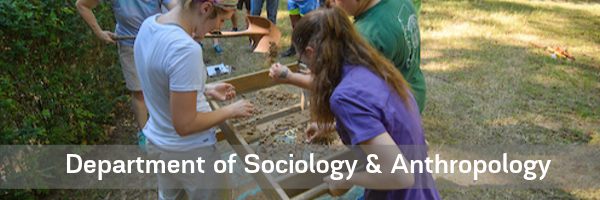
Faculty and Student Publications
Document Type
Article
Publication Date
12-1-2022
Abstract
The genetic prehistory of human populations in Central America is largely unexplored leaving an important gap in our knowledge of the global expansion of humans. We report genome-wide ancient DNA data for a transect of twenty individuals from two Belize rock-shelters dating between 9,600-3,700 calibrated radiocarbon years before present (cal. BP). The oldest individuals (9,600-7,300 cal. BP) descend from an Early Holocene Native American lineage with only distant relatedness to present-day Mesoamericans, including Mayan-speaking populations. After ~5,600 cal. BP a previously unknown human dispersal from the south made a major demographic impact on the region, contributing more than 50% of the ancestry of all later individuals. This new ancestry derived from a source related to present-day Chibchan speakers living from Costa Rica to Colombia. Its arrival corresponds to the first clear evidence for forest clearing and maize horticulture in what later became the Maya region.
Relational Format
journal article
Recommended Citation
Kennett, D. J., Lipson, M., Prufer, K. M., Mora-Marín, D., George, R. J., Rohland, N., Robinson, M., Trask, W. R., Edgar, H. H. J., Hill, E. C., Ray, E. E., Lynch, P., Moes, E., O’Donnell, L., Harper, T. K., Kate, E. J., Ramos, J., Morris, J., Gutierrez, S. M., … Reich, D. (2022). South-to-north migration preceded the advent of intensive farming in the Maya region. Nature Communications, 13(1), 1530. https://doi.org/10.1038/s41467-022-29158-y
DOI
10.1038/s41467-022-29158-y
Accessibility Status
Searchable text

